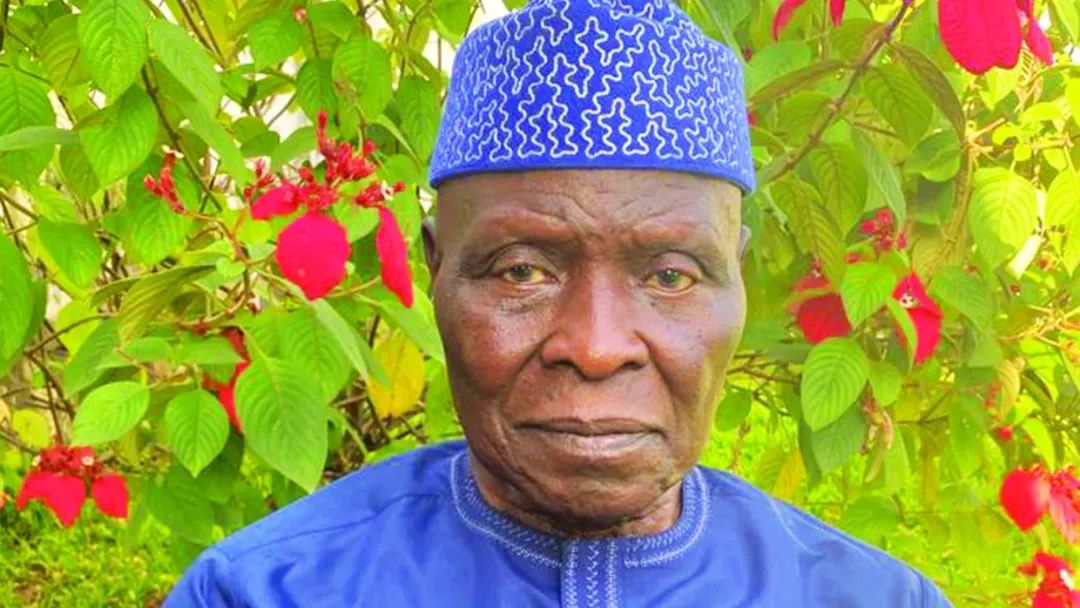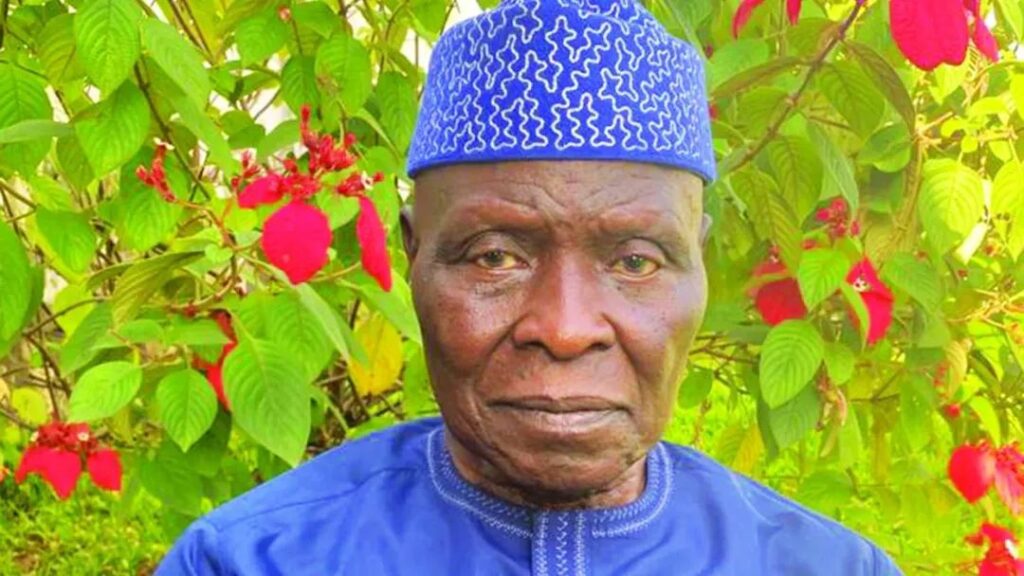News
Ambode And The Street Traders Of Lagos By Reuben Abati
I am writing this piece after holding a series of conversations with Lagos street traders and hawkers who seem not be aware of or are just indifferent to, or may be they are intrigued by, the fact that the State Governor, Akinwunmi Ambode has declared on television that the state government is prepared to enforce an existing law banning street hawking.
The relevant law, the Lagos State Street Trading and Illegal Market Prohibition Law, 2003 prescribes a punishment of N90, 000 or a six-month jail term, for both the buyer and the seller of any goods or services on the streets. So I asked this vendor, who kept pushing copies of the day’s newspapers in my face, so close, you wouldn’t even be able to read the headline free of charge.
“My friend, are you aware that what you are doing is illegal? You never hear say Governor Ambode don ban street trading?”
“That one no concern vendor oh. Na these other people wey dey sell chewing gum and water dem dey talk about”
“No. Street trading is street trading. You are hawking your newspapers, why don’t you get a shop or a stand?”
“Make I open shop to sell newspaper? Na for inside traffic people dey buy newspaper, oga?’”
“I just hope they won’t arrest you. The fine is N90, 000 or six months in jail.”
“Oga, you wan buy paper? Which one you wan buy, I beg. See, the thing be say, for this Nigeria, anytime wey anybody reach power, dem go just dey do wetin dey like. Dey no dey pity we poor people at all.”
I laughed and drove off.
“Water! Water!”, I yelled at a young man carrying a small basket of drinks. He ran to the car from the other side of the road, side-stepping a Keke Marwa and almost colliding with a motorcycle.
“How much?”
“N100”
“Can I buy because I hear the Governor says they should arrest anybody that is hawking anything in Lagos. And this is Agidingbi oh, too close to Alausa. Please.”
“Oga buy wetin you wan buy. If we no sell water for traffic, you know how many people go don die for inside go-slow. When traffic start now, even Ambode go buy water for inside traffic drink.”
“Oya, bring it quickly. Don’t let those LASTMA people see you.”
“Which LASTMA people? Oga, relax. Na we-we. As we dey this street so, nobody fit remove us.“
As I listened to his attempt to share his knowledge of the streets, I heard the clanging of a bell. A bicyclist was approaching, a mini-cooler, hanging conspicuously in his front. Fan Ice! Fan Milk! A young girl passed, carrying a tray of groundnuts. The early morning traffic was beginning to build up, 24 hours after Governor Ambode huffed and puffed on television about street hawking.
I immediately remembered Olajumoke Orisaguna, the Nigerian Cinderella, who made it from street hawking to the runway. It occurred to me to ask one of the hawkers.
“Do you know Olajumoke?”
“Olajumoke, oni bread. Oga you sef, e ti jasi. Don Jazzy, Baba. If Olajumoke no sell bread for street, how dem for discover say him get talent. Oga, as you me so, I be student oh for Polytechnic. The money I make from the street, that ‘s what I use to maintain myself and one day, if I become Governor in this country, I‘ll remember and I will not ban street hawking.”
That was some sobering thought. The sociology of street trading is worth understanding. It is mostly a source of employment for many persons with low income and low education, and in its more structured format, a large part of the informal sector in many parts of the world. For the buyer who has been demonized along with the seller in the Lagos state law, street trading actually provides easy access to a lot of goods and services, and when you are trapped in the ubiquitous traffic hold-ups across the city, running into hours oftentimes, it helps to just look out the window and buy any food item ranging from fish, to fried meat and shrimps, loaves of bread, biscuits, gala, meat pie, water, beer and any other drink. If it is a rainy day and you need to step out of the vehicle, you can buy an umbrella while in the traffic. You can also get served hot milk, tea or coffee, or have a shoe-shiner give your shoes a new, clean, gleaming look.
On a sunny and humid day, and you are thirsty, you can have very cold fan milk, or any other drink to cool down your system. Pop-corn, roasted maize, walnuts, name it, everything is available by the roadside, as the traffic crawls. If you have issues with your phone, or your wrist-watch, or even your clothes, you can buy new ones on the streets. Books, musical CDs, electronics, even sex toys, and aphrodisiacs. There is a special connection between traffic and street trading. But there are also challenges for all parties involved: for the buyer, you could get sold fake or risky stuff, and your money could be stolen – always collect the goods and your change before you hand over any amount.
The sellers always have to contend with physical risk and sexual abuses, run-ins with extortionist law enforcement officials, nerve-wracking exposure to the elements, and competition for space. People sell on the streets because they cannot afford to rent shops or erect structures, and in any case, government is often part of this problem. Markets are taken over by the authorities with the intention to modernize them, but when the shops and stalls are built, the original traders can no longer afford them because they would have been taken over by the rich and prized beyond the reach of the poor who are then forced onto the streets, thus deepening the agony of the displaced and the marginalized. This is the story of Tejuoso market in Lagos, as is the story of others across the country. If street traders had a choice, they would also acquire permanent structures where they can display their wares in safety. If they could help it, they will also sit in the comfort of air-conditioned vehicles. Traffic and street trading further define an existential part of the urban social order, and in Lagos as elsewhere, the character, pulse and soul of the city.
The convenient tendency for government officials is to dismiss the street as the haunt of miscreants, criminals and the dubious and street trading as a nuisance to the social order. This is what Governor Ambode of Lagos has done. The trigger for his televised sanctimony is the recent clash in Lagos at Maryland and Ojota, involving the law, traffic and street traders with tragic consequences. We are told that Kick Against Indiscipline (KAI) officials had given a hawker the chase, that fateful day. As the young man ran across the busy expressway, he found himself in front of an on-coming state-government owned BRT bus, which crushed him instantly – his intestines gouged out. This resulted in mob action.
In the process, 49 BRT vehicles, belonging to the state government were torched, and according to the Governor, it will cost the state government “almost N139 million to put those buses back on the road.” The Governor sounds as if the loss of these buses is more painful than the death of Nnamdi, the street hawker who was chased to his death. Haba, Governor, se oro ni yen! The Governor needs to be reminded of the over-zealousness of KAI-LASTMA officials and the recklessness, also, of BRT bus drivers, and the fact that N139 million may replace buses, but it will not replace a life that has been lost. It is also hard to believe that the Governor’s position is based on the outcome of investigations, which try to distance the state officials from the accident, and even if this is so, the decision to exhume a law that is to all practical purposes, a dead law, only enforced opportunistically, does not fully address the issue. A law is dead as an instrument of social justice when it is openly defied, disregarded, resisted and attempts to enforce it are openly ridiculed, and the state itself finds its application difficult in the face of the people’s preferences and choices. The test and impact of any true law is in its application.
To get hawkers off the streets, government must provide alternative opportunities and invest more in social capital. The menace of traffic hold ups should be addressed and a proper transportation network must be in place. Shops and stalls must be affordable and accessible and markets should be located in user-friendly locations. Street hawkers are constrained by their social circumstances, most of all, by poverty. To check street trading, government must also address the rising threat of rural-urban migration. Lagos as a growing megalopolis is the destination of choice for all kinds of adventurers from Nigeria’s hinterlands, they arrive in the city, and having nothing to do, they manage to buy a basket, or a tray, which they fill with goods that may not be up to N5,000, and they jump onto the streets, struggling to earn a living as the traffic crawls.
To push them out is to destroy the only dream they have of remaining human. The state government should take a second look at the law: perhaps the most urgent thing is to insist that anyone of school age, must not be found hawking, during school hours. And no matter what, Governor Ambode should not rob us of the humour of the streets, a rich therapeutic part of life and living in Lagos. I remember as I say this, those young, nubile girls on the streets of Lagos who sell drugs and local herbs. They all have the same qualifications: their front-lamps are permanently in the North, staring directly into a man’s eyes. The girls are coy, friendly, optically tempting, and they only target men as customers. Even when you insist you don’t need what they sell, they won’t let you be.
“Oga, buy this tablet now. Or taste this drink. Madam will thank you for it.”
“Madam? She must not even know I spoke with you!”
“But she will thank you, I swear.”
“You have used it before?”
“Hen hen.”
“Okay. But before I buy anything, I must test it. And na me and you go test am. Enter moto, make we go.”
“Hen, go where? Oga, go test am with Madam for house.”
“No. I will test it on you first. Fine girl, you dey fear?”
Oftentimes, this is followed by much laughter with the girl scampering off…
News
Tinubu Appoints Grace Henry as First Female Chair of Nigerian Legion

President Bola Ahmed Tinubu has appointed Grace Henry as the new chairman of the National Council of the Nigerian Legion, marking a historic first as both the first woman and the first non-commissioned officer to lead the country’s foremost veterans’ organization.
The announcement was made on Thursday in Abuja via a statement by Abdul Lauya, Senior Special Assistant on Media and Digital Communications to the chairman.
According to the statement, Henry’s appointment was formalized through a letter signed by the Secretary to the Government of the Federation, George Akume, and takes effect from June 7.
Born on October 5, 1964, Henry brings with her over 25 years of military and administrative experience. She retired from the Nigerian Army in 2000 and most recently served as Director of Corporate Affairs at the Legion’s headquarters in Abuja. She is also the current National Coordinator for Female Military Veterans of Nigeria.
She succeeds retired Major General AbdulMalik Jibrin. Her appointment is widely seen as a reflection of the Federal Government’s commitment to promoting gender inclusion and equal representation within the military veterans’ community.
President Tinubu expressed confidence in her leadership and urged her to leverage her experience to reposition the Nigerian Legion, which serves as a vital support system for the nation’s ex-servicemen and women.
Her appointment is expected to usher in a new era of reforms and revitalization for the Legion amid growing calls for improved veteran welfare and institutional development.
The Nigerian Legion, a statutory body established to support the welfare of ex-servicemen and their dependents, plays a critical role in the rehabilitation, reintegration, and economic empowerment of military veterans. It also promotes national unity through remembrance events such as the Armed Forces Remembrance Day and collaborates with various agencies to uphold the dignity of retired military personnel.
In response to certain media reports describing her as “one of the most powerful non-commissioned ex-service personnel,” Henry distanced herself from the characterization.
“She wishes to make it clear that leadership is not about grandstanding or media posturing,” Lauya stated. “There is no such thing as being ‘most powerful’ under her leadership.”
Henry emphasized that the Legion remains a unified body, representing all veterans—commissioned and non-commissioned—without bias or division. She condemned any effort to create artificial hierarchies within the organization and called on the media to refrain from spreading unverified claims.
“She remains committed to the principles of unity, service, and integrity,” the statement added. “Ms. Grace Morenike Henry belongs to all and to none in particular. Her mission is to serve all Nigerian veterans equally and selflessly.”

News
Former Kwara Governor Cornelius Adebayo Dies at 84

Chief Cornelius Olatunji Adebayo, a former governor of Kwara State and one-time senator, has died at the age of 84.

Lagos Lately TV confirmed his passing through a close family associate, who disclosed that Adebayo died early Wednesday morning in Abuja.
Born on February 24, 1941, in Igbaja, Kwara State, Adebayo’s political journey began with his election as senator under the Unity Party of Nigeria (UPN) in 1979. He later served briefly as the state’s governor in 1983. Between 2003 and 2006, he held the position of Nigeria’s Minister of Communications.
A respected advocate for democracy, Adebayo was a leading voice in the National Democratic Coalition (NADECO), which pushed for the actualization of MKO Abiola’s June 12, 1993 presidential mandate. Notably, he declined an appointment to serve in General Sani Abacha’s military government in 1993, standing firm in his democratic convictions.
Foreign
Fear of Assassination: Iran’s Supreme Leader Khamenei Picks Three Potential Successors—Excludes Son

Amid rising tensions and fears of targeted attacks, Iran’s Supreme Leader Ayatollah Ali Khamenei has reportedly named three possible successors, excluding his son, in preparation for a worst-case scenario during the ongoing conflict with Israel.
According to a Saturday report by The New York Times, the 86-year-old leader, who is said to be operating from a secure underground bunker, privately selected three senior clerics to take over leadership if he is killed. The decision follows a wave of high-profile assassinations allegedly carried out by Israeli forces, which has heightened concerns at the highest levels of Iran’s leadership.
Crucially, Khamenei’s son, Mojtaba—who has long been rumored to be his heir apparent—was not included among the chosen candidates. This marks a significant departure from previous speculation suggesting a dynastic transition was in the works. The Jerusalem Post also confirmed the report, adding that Khamenei has made additional contingency plans by appointing replacements within Iran’s military hierarchy in anticipation of further Israeli attacks.
Traditionally, Iran’s Supreme Leader is selected by the Assembly of Experts, a powerful clerical body of 88 members. However, Khamenei’s move suggests he may be attempting to influence the succession process in advance, seeking to ensure ideological continuity and maintain regime stability amid external threats.
Experts believe the choice of three clerics rather than a single successor points to internal disagreements and the urgent need for contingency planning as the situation escalates. While the identities of the chosen individuals remain undisclosed, sources say they are trusted hardliners closely aligned with Khamenei’s vision.
Regional Impact and Rising Concerns
The reported development comes at a volatile time in the Middle East, with recent Israeli strikes targeting senior Iranian and Hezbollah figures. Analysts warn that any sign of instability in Iran’s leadership could further destabilize the region.
“This is not just theoretical succession planning — it’s being done under the very real threat of attack,” a regional intelligence source told The New York Times. “The regime clearly views the risk of a leadership vacuum as imminent.”
Khamenei’s decision underscores the high level of concern within Tehran’s leadership circle as it braces for potential escalations and prepares for scenarios that were once considered unlikely.

-

 News1 year ago
News1 year agoHardship: We Plan To Establish A National Commodity Board To Crash Food Prices – VP Shettima
-
News7 years ago
Blog Reader; Samson Osagiede Celebrates Fiancè Benedicta Daniels’s Birthday With Sweet Words
-
Home9 years ago
News Channel claims Donald Trump is an orphan from Pakistan,share alleged childhood photo
-
Home9 years ago
Another $175m Found in Patience Jonathan’s wife’s firm’s Bank Account
-
Home9 years ago
Oil Spillage: House of Reps Member Shares Photos of the Water her Constituents Drink .
-
Home9 years ago
Zara Buhari & Ahmed Indimi’s Wedding Access Card
-
News7 years ago
The Best Video You’ve Seen Today?
-

 Sport7 years ago
Sport7 years agoModric, Marta Wins 2018 FIFA Best Player Of The Year Awards ⚽️

